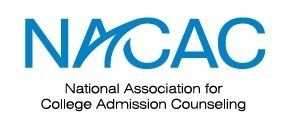Blog Layout
To find summer opportunities, do an online search for a particular subject area or check out TeenLife. Below are some additional ideas for an interesting and productive summer.
Gain skills or knowledge
- Read. Anything.
- Learn something new. Learn something new through free online courses at Coursera, edX, or Open Learning Initiative. Or learn a language through online learning platforms such as Babbel, Rosetta Stone or DuoLingo.
- Learn the stories of your family. This could be a perfect time to get to know your parents better. Download the Story Corp app on your phone, then ask your family members for some stories about their lives.
- Learn to code for free.
- Explore careers. Set up interviews with professionals in careers that interest you. Don’t know where to start? Take the YouScience career assessment.
- Practice video interview skills. You may need them to do job or college interviews.
- Participate in online summer research.*
Pioneer Academics, Polygence, and Lumiere Education
offer students the opportunity to work one on one with a researcher.
- Start a “passion project.”
Get better at something that YOU want to get better at. Delve deeper into a topic that you’ve never had enough time to explore in depth before.
Get political
- Contact your elected officials. What’s on your mind? Find out who represents you. Then contact your local officials or your U.S. Representative, Senator Cornyn, Senator Cruz, Governor Abbott, or the President of the United States
to make your views known.
Volunteer
- Transcribe original documents. Interested in history? The Library of Congress is looking for volunteers to make original documents word-searchable in the Library of Congress catalog. Volunteers can choose which tasks they want to do and what pages they want to work on.
- Record books in the public domain for Librivox. The books are made available free to people from all around the world.
- Look nationwide for volunteer opportunities. Check out Volunteer Crowd, Volunteer Match, YSA (Youth Service America), and Points of Light.
- Share your talents through an online platform.
Become an entrepreneur
- Set up an Etsy store. Enjoy making something and learning business skills at the same time. Consider donating the proceeds to a worthy cause.
Work toward post-high school options
- Do college research.
- Write your college essays.
- Complete your college applications.
- Explore gap year or non-college options.
Recent posts

By Zena Taylor
•
01 Jun, 2022
Students should aim to write EFFECTIVE essays, which do their job. An effective essay (1) answers the prompt (2) tells a college something about the student it wouldn't know from the rest of the application (3) shows the student in a positive light (4) fits the word/character limit (5) shows reflection and, ideally, shows change or growth. That's it!

By Zena Taylor
•
20 May, 2020
The college admissions landscape is rapidly evolving right now, but some things remain the same. Colleges will still evaluate students based on how they took advantage of whatever was available to them. By the time high school students graduating in 2021 are ready begin college, colleges will have had enough time to adapt to the situation existing then. Selecting Colleges Students can't visit colleges right now. But they can make their initial college list using available resources to find good-fit colleges. There are many excellent data-driven and more subjective online resources. Most colleges are creating a variety of opportunities for students to engage with them through online information sessions, virtual tours, and online visits with current students and professors. Admissions Selectivity It seems likely that most colleges will become less selective in their admissions process after this pandemic because of a declining number of high school students in some parts of the country. Some low-income and middle-income families may no longer be able to afford a 4-year college degree for their students, which means that colleges will be eager to recruit applicants who can attend. On the other hand, extremely selective colleges with large endowments are likely to continue to be extremely selective or become even more so. For families who qualify for need-based financial aid, most of these extremely selective colleges are a bargain. For many families who are able to pay full price, the appeal of attending a college with name recognition will still be there. Standardized Testing A growing number of colleges and universities are going "test-optional" for one to three years (or from here on out). That's probably good news for at least some students who don’t have the standardized test scores they wish they had. In the past, most test-optional colleges have offered little or no merit money to students who chose not to submit test scores. Some colleges did offer merit money to non-submitters but not the maximum merit amount. The use of test scores to give out academic scholarships could change in the future with so many colleges now going test-optional. No test scores will mean increased scrutiny for the rest of the college application, especially grades and academic rigor. Essays may play a bigger role in the admissions process as well when there aren’t other big differences between applicants. It's highly likely that the College Board will find a way to administer the SAT in August to be competitive in the marketplace. The ACT may selectively administer the July ACT in locations with few Covid-19 cases. Availability at testing sites could be an issue for some students until later in the fall of 2020. With fewer students submitting standardized test scores, it will be an advantage for students with strong test scores to submit them. The summer can be an ideal time to prepare for the exams even if the students won’t be able to take the exam for several months because it is easier to “brush up” then to start learning new concepts from scratch.

By Zena Taylor
•
20 May, 2020
There will likely be a lot of belt-tightening in higher education in the near future. After the 2008 economic downturn, states cut the money they allocated to their public universities. Families need to make sure that the colleges to which their student applies will be financially viable because 10-20% or more of the colleges may not be after the unexpected outlays caused by sending students home and going online in the spring of 2020. Universities will vary in how much they cut from their financial aid budgets, so cost-sensitive families should ask at each college the student is considering. One bright side on the financial front is that the expected loan rates for the 2020-2021 school year have come down on federal loans for parents and students. Lower interest rates will mean that families taking out loans will end up paying a bit less for college in the end. Interest rates will be so low for the student loans that some families that hadn’t considered loans for their student before may now find it to be an attractive option for helping to pay for college. Direct Undergraduate Loans (Subsidized and Unsubsidized) Current 2019-2020 rate - 4.53% Estimated 2020-2021 rate - 2.75% Parent PLUS Loans and Grad PLUS Loans Current 2019-2020 rate - 7.08% Estimated 2020-2021 rate - 5.3%










